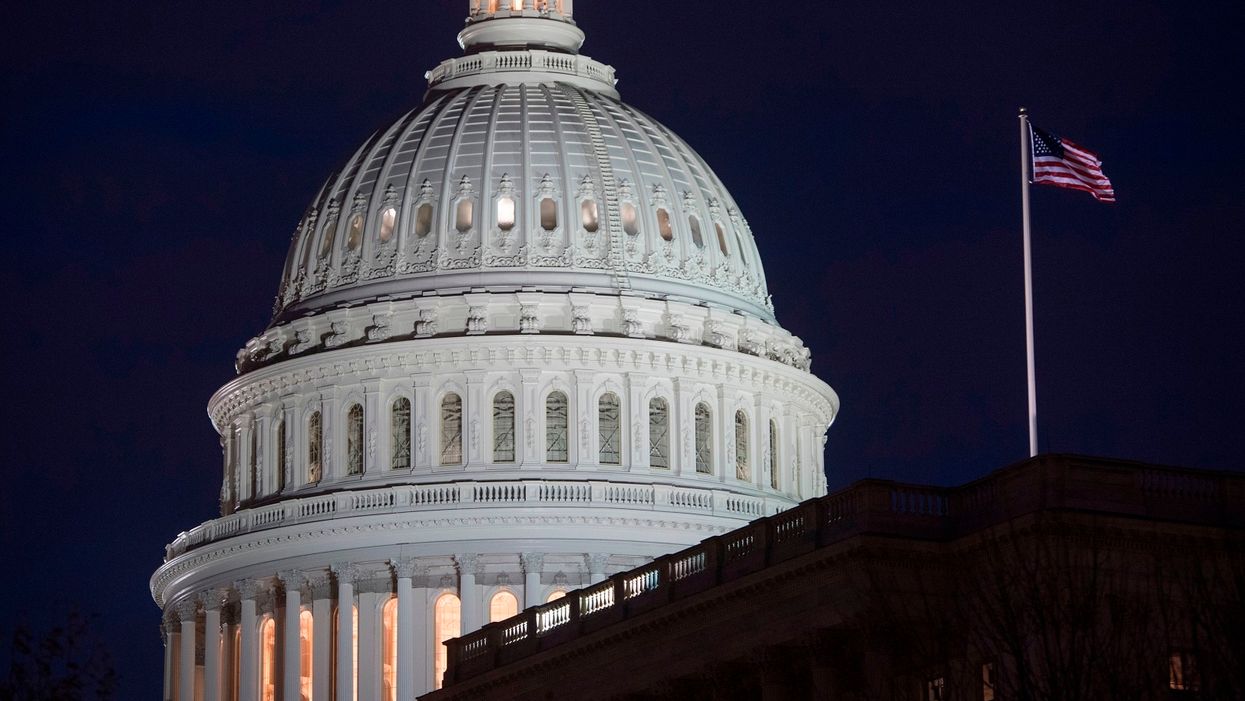
(SAUL LOEB/AFP/Getty Images)

The bill only includes $1.3 billion of the $5 billion for border security that Trump had demanded
Congress sent a short-term spending bill to President Donald Trump on Thursday, in an effort to stave off a government shutdown. However, this will only keep the government open until Dec. 21. Trump is expected to sign the bill.
This bill will push the day that a long-term spending bill has to be passed from Friday to Dec. 21.
But when it comes to passing a more permanent fix, there could still be a fight looming ahead.
House Minority Leader Rep. Nancy Pelosi (D-Calif.), who is expected to take on the speaker role in the new year, and Senate Minority Leader Chuck Schumer (D-N.Y.) have agreed to move forward with a long-term spending bill that would give $1.3 billion for border security nest year. This is only 26 percent of the $5 billion that Trump has said he would need to see on any spending bill he signed.
Schumer has said that Senate Democrats would not give Trump the full $5 billion, and that Trump's best bet would be approving a bill the Senate had negotiated earlier in the year that included $1.6 billion for border security.
"We don't want to see the government shut down over Christmas, even though President Trump seems to brag that he wants one," Schumer said. "The one and only way we approach a shutdown is if President Trump refuses both of our proposals and demands $5 billion or more for a border wall. The wall request is a non-starter."
Trump tweeted at Congressional Democrats that “Top Border Security, including a Wall, is $25 Billion," but claimed that this expense would “pay for itself in two months."
Could somebody please explain to the Democrats (we need their votes) that our Country losses 250 Billion Dollars a year on illegal immigration, not including the terrible drug flow. Top Border Security, including a Wall, is $25 Billion. Pays for itself in two months. Get it done!
— Donald J. Trump (@realDonaldTrump) December 4, 2018
One issue the new spending bill may have to address is the rapidly expanding U.S. federal budget deficit. The budget deficit for the month of October hit $100 billion, up from $63 billion for October 2017. The deficit is predicted to hit $1 trillion in 2019.
The only other time the federal budget deficit hit $1 trillion was between 2009 and 2012 when the federal government was using bailouts and other measures to try to counteract the recession.